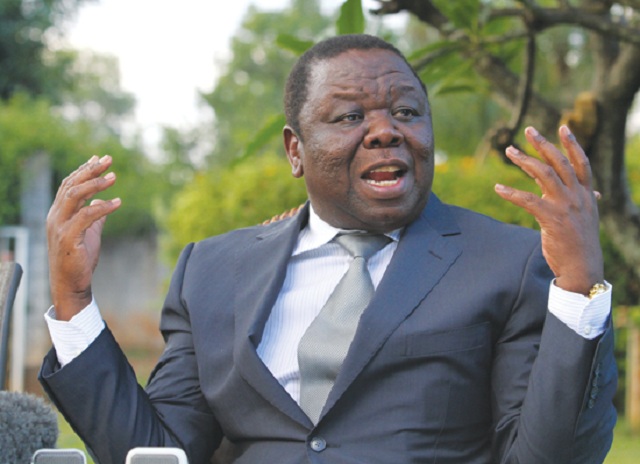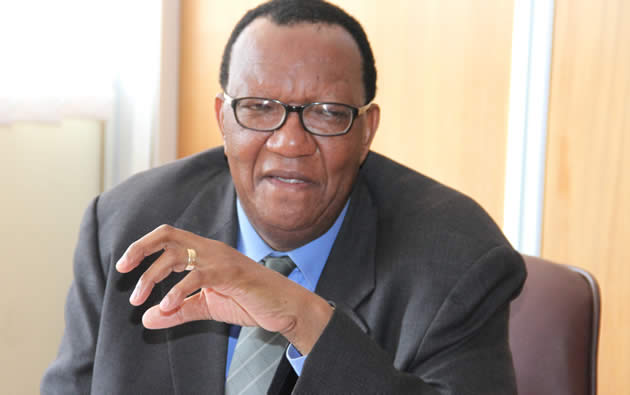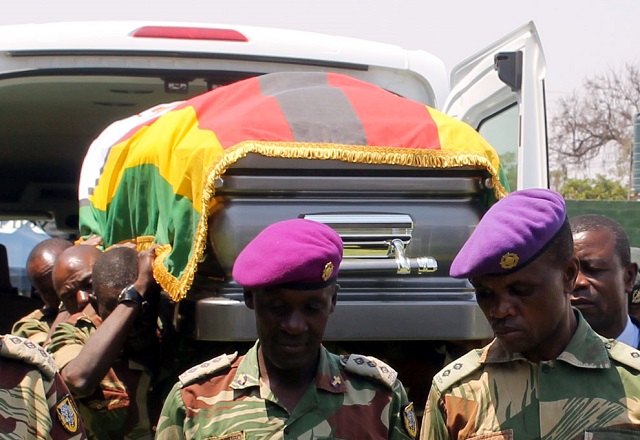Dreading elections, contesting outcome

Joram Nyathi, Spectrum
The litany of demanded reforms tells us one thing: rather than prepare to contest and win elections in 2018, opposition parties are preparing to contest the electoral outcome instead.
The rest are side-shows Zimbabwe is hardly ever too far from election mode. But it also differs from regional countries in another respect: opposition parties always demanding a litany of electoral reforms that they believe will make them win elections. If they are not preoccupied thus, they are arguing among themselves about who should lead an as yet unformed grand coalition which they hope can beat the governing Zanu-PF.
It is not surprising, therefore, that engaged in these diversions, Zimbabwe’s opposition parties rarely have time to sell their policies to prospective voters; that is if they have such policies to sell beyond talk of democracy, and removing Mugabe from power. Same old story.
The next elections are scheduled for around mid-2018, that’s less than two years away. The main opposition Movement for Democratic Change of Mr Morgan Tsvangirai lost badly in the previous harmonised elections in 2013. Since then it has splintered, and poses little threat to Zanu-PF.
There are a motley other formations, joined last year by Zimbabwe People First led by former Vice President Dr Joice Mujuru.
Chairwoman of the Zimbabwe Electoral Commission (ZEC) Justice Rita Makarau announced last week that they had, of their own accord, started working on improving administration of elections to avoid disputed outcomes. It is an ambitious undertaking given that the demanded reforms now exceed the biblical 10 Commandments, including that Justice Makarau herself should not chair ZEC.
Responding to claims by the opposition under the umbrella of the National Electoral Reform Agenda (NERA) that Zanu-PF rigs elections by using so-called ghost voters or by allowing its supporters to vote more than once, Justice Makarau said ZEC was introducing a marking pen to be used by voters instead of them dipping their little finger in a bottle of ink.
More importantly, they are also introducing for the first time a biometric voter registration system which can detect an individual trying to vote a second time at the same polling station. Also, voting will be polling-station based. Each polling station will handle between 800 and 1 500 voters. (Not surprising, ZESN thinks 1 500 voters in 12 hours is too much. Why? Zambia had 800.)
Justice Makarau explained how the biometric system makes it impossible for one to vote more than once to allay the fears of sceptics. “The biometric voter registration system means that in addition to details like your date of birth, names and ID number, we are also going to capture some of your biometric features . . . We will capture your face and fingerprints digitally,” said Justice Makarau.
This way, she said, the biometric “kit will determine whether anyone else with similar fingerprints and image has registered even under another name”. This should ensure the integrity of the new voters’ roll, which replaces the old one compiled by the registrar-general’s office headed by Cde Tobaiwa Mudede. This is a constitutional requirement. Another concession from more than a dozen NERA demands.
But they are far from appeased. The complaints are incessant, and growing, from the sensible to the ridiculous sometimes.
Last week MDC-T spokesman Mr Obert Gutu claimed the 2018 harmonised elections would be rigged (they are forewarned but not forearmed as a political party). He said the rigging would be achieved through a ballot paper treated with a chemical to produce a specific result.
“I can’t give you the full details, but these are ballot papers that are chemically-designed to project a particular result,” he said cryptically when asked by our Harare Bureau, how such a chimera was possible.
The party also recently asked that it be directly involved in the procurement of ballot materials.
The list of demands keeps growing from a few “outstanding issues” during the Government of National Unity with Zanu-PF between 2009 and 2013 to more than 12 now. They want an independent electoral commission, which ZEC already is in terms of the Constitution, military personnel should not be involved in elections even if they are long retired, they want postal voting for the diaspora and don’t want traditional leaders to be involved in active politics, and it goes on.
Following the split of the MDC-T after its dismal performance in the July 31, 2013 harmonised elections, Mr Tsvangirai recalled about 14 of his party representatives from Parliament for crossing the floor. He then refused to take part in subsequent by-elections until there were electoral reforms (no reforms, no elections), and Zanu-PF took the bonus seats on a silver platter, in the process increasing its already unassailable parliamentary majority.
It is an emaciated MDC-T far outnumbered by Zanu-PF now pushing for electoral reforms.
Zanu-PF has been uncompromising. “We are not going to legislate ourselves out of power,” Mr Tsvangirai has been told repeatedly. And he has himself to blame. People ask why those electoral demands, if they are genuine, were not captured in the making of the new Constitution in which all political parties and civic society organisations participated. All the parties subsequently campaigned for the adoption of the Constitution in the referendum of May 2013.
Said a political analyst, Goodwine Mureriwa last week; “They are trying to build a case that the elections won’t be free and fair, which is a tired strategy. Instead of mobilising support for themselves to win elections, the MDC-T is busy trying to throw spanners in the process and trying to cause panic.”
They are not mobilising voters, instead they are fighting the elections in the media.
Negotiations to form a “grand coalition” to fight Zanu-PF in the 2018 elections have failed to make progress. Big egos appear to stand in the way, concede both Dr Mujuru and Mr Tsvangirai, ironically the two supposed frontrunners lead a non-existent coalition. Tsvangirai sees himself as the face of the democratic struggle since the formation of his party in 1999 while Mujuru claims to bring to the coalition liberation war credentials so badly missing in the MDC, but still smells too much like Zanu-PF. The other leaders don’t have the numbers.
The fusionists can’t agree on a leader of the coalition the juniors desperately want to hold on to their party positions.
Another unfailing demand is that there must always be Western observers to Zimbabwean elections. From the same countries which imposed sanctions on Zimbabwe over the land reform programme and have not hidden their desire for regime change. Discerning their disposition in our elections requires no magic.
The opposition doesn’t trust regional election observers, most of whose governments are former liberation movements still keen to assert their independence.
Predictably, there will be more talk of elections and reforms after the 2018 elections.
The litany of demanded reforms tells us one thing: rather than prepare to contest and win elections in 2018, opposition parties are preparing to contest the electoral outcome instead. The rest are side-shows.
Greatness
When a truly great man dies, too many words of praise can tend to diminish their greatness. So, hamba kahle Baba Cephas Msipa, true fighter for peace and justice.









Comments